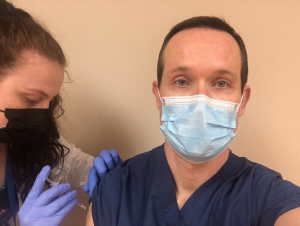Colorectal Polyps: What You Need to Know
Colorectal polyps are excess tissue that can form in the lining of the colon or rectum. While most are harmless, some can develop into cancer. Here’s what you need to know about polyps.
Causes, Risk Factors, and Symptoms of Colorectal Polyps
Polyps occur when certain mutations in genes cause uncontrolled cell growth. This continued growth can turn into groups of tissue- polyps- in your large intestine. Some of the risk factors for polyps include family history, being 50 or older, obesity, low exercise levels, and tobacco or alcohol use.
In many cases, polyps may not cause any symptoms at all. You may find you have a polyp only after an examination like a colonoscopy. However, in some cases polyps do cause symptoms. These include rectal bleeding, pain, changes in bowel habits, and a change in stool color (red streaks or black stool).
Neoplastic Polyps
One of the two main kinds of polyps is neoplastic. Neoplastic polyps have the potential to become cancerous. Within this classification, there are a few additional types of polyps. Adenomas are the most common type of polyp, making up around 70% of polyps. When found, it’s tested for cancer. It can take many years for these kinds of polyps to become cancerous, so with proper screenings they can be taken care of before they become a major problem. Serrated polyps are the second main type of neoplastic polyps. These can become cancerous depending on their location and size. Larger polyps have a higher risk of becoming cancerous.
Non-neoplastic Polyps
In comparison, non-neoplastic polyps usually do not turn cancerous. One common kind, hyperplastic polyps, are small and very rarely become cancerous. Another type, inflammatory polyps, are common in people with inflammatory bowel disease. These do not grow like other polyps- they develop in response to chronic inflammation. They tend to be benign. One final type is hamartomatous polyps. These may occur as part of a genetic syndrome, and tend to be benign as well.
Reducing Risk and Preventing Colorectal Cancer
In general, there are several lifestyle and screening measures you should take to reduce the risk of polyps and colorectal cancer. Eating fruits and vegetables and reducing fat intake are key dietary steps that can help you remain healthy. In addition, you should limit alcohol and tobacco consumption. Plus, staying active is a must.
You should also consider your risk for colorectal cancer or polyps based on family history. In some cases, you may want to pursue genetic counseling if your family has a history of colon polyps. Additionally, if you have a hereditary disorder that causes polyps, you may need earlier and more regular screenings.
Screenings themselves are a key aspect of preventing colorectal cancer. The colonoscopy remains the gold standard for screenings. It allows doctors to both detect and remove polyps to prevent colorectal cancer. In fact, annual colonoscopies reduce cancer incidence by around 89%. Screenings are now recommended earlier- at GHP we endorse annual colonoscopies for all patients ages 45-75. Visit our website to learn more.
Our experienced team at GHP has years of experience screening for and treating colorectal cancer. We can help establish the best plan of care for your situation. Contact any of our office locations to learn about the options we offer and schedule an appointment today.



